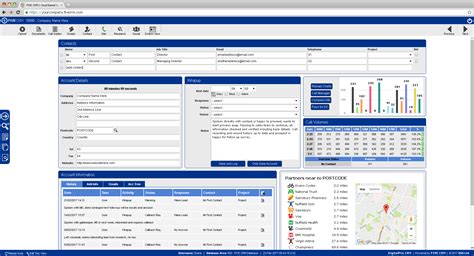Introduction
In today’s digital era, businesses are increasingly relying on contact centers to handle their customer interactions. Contact centers serve as a vital communication channel for customers to address their queries, concerns, and feedback. However, managing customer interactions can be a daunting task, especially when dealing with a large volume of inquiries. This is where Customer Relationship Management (CRM) tools come into play, providing businesses with the necessary tools to streamline their customer interactions, improve customer satisfaction, and boost sales performance.
What is CRM?
CRM is a software solution that helps businesses manage and analyze customer interactions and data throughout the customer lifecycle. The CRM system is designed to automate and simplify various customer-facing activities, such as customer service, marketing, and sales.
Importance of CRM in Contact Centers
Contact centers are the primary point of contact between customers and businesses. Therefore, it’s essential to ensure that every interaction is seamless and satisfactory. CRM systems help contact centers to achieve this by providing agents with a 360-degree view of the customer’s history, preferences, and previous interactions. This enables agents to personalize their communication and provide relevant solutions to customers, leading to higher customer retention and satisfaction.
Benefits of CRM for Contact Centers
Implementing a CRM system in contact center operations can deliver several benefits, such as:
Improved Customer Experience
CRM systems enable agents to track customer interactions and preferences, leading to personalized communication and solutions. This makes customers feel valued and heard, resulting in higher customer satisfaction.
Increased Efficiency
CRM systems automate various contact center activities, such as call routing, scheduling, and reporting, leading to increased efficiency and productivity.
Better Sales Performance
CRM systems can also help contact centers to manage leads, track sales activities, and analyze customer behavior, leading to better sales performance and revenue growth.
Choosing the Right CRM Solution
Choosing the right CRM solution can be a daunting task, given the numerous options available in the market. It’s essential to consider factors such as the size of your contact center, the number of agents, and the functionality required. Additionally, you should opt for a CRM solution that integrates with your existing contact center software, such as telephony and chat systems.
Conclusion
CRM systems are becoming a necessity for contact centers to deliver seamless customer experiences and boost sales performance. By implementing a CRM solution, businesses can streamline their contact center operations, improve customer satisfaction, and drive revenue growth. Therefore, if you’re looking to enhance your contact center operations, consider implementing a CRM system today!




